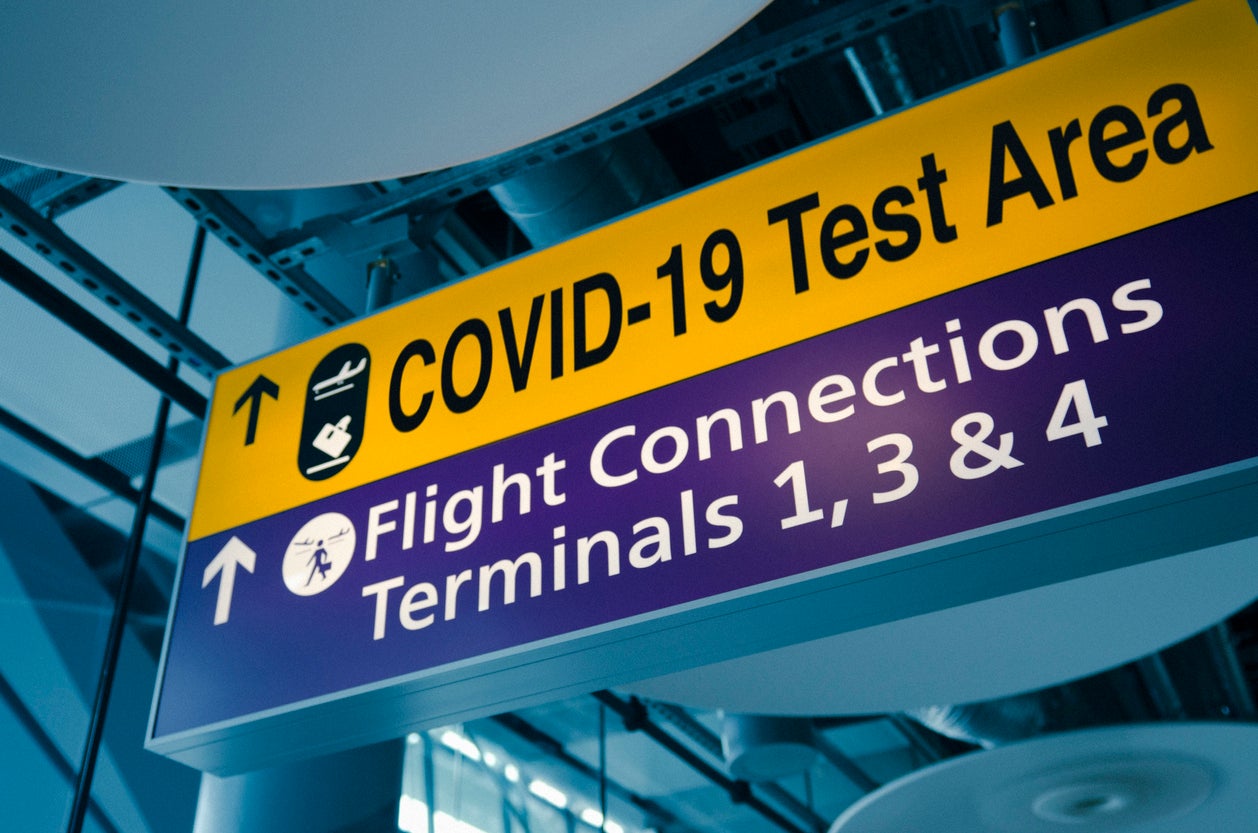Travel tests have virtually no impact on spread of Covid variants, study shows
Travel restrictions might delay a variant’s peak if introduced within days of importation, but not after

Your support helps us to tell the story
From reproductive rights to climate change to Big Tech, The Independent is on the ground when the story is developing. Whether it's investigating the financials of Elon Musk's pro-Trump PAC or producing our latest documentary, 'The A Word', which shines a light on the American women fighting for reproductive rights, we know how important it is to parse out the facts from the messaging.
At such a critical moment in US history, we need reporters on the ground. Your donation allows us to keep sending journalists to speak to both sides of the story.
The Independent is trusted by Americans across the entire political spectrum. And unlike many other quality news outlets, we choose not to lock Americans out of our reporting and analysis with paywalls. We believe quality journalism should be available to everyone, paid for by those who can afford it.
Your support makes all the difference.Covid-19 tests taken by travellers have little to no impact on the spread of new coronavirus variants, recent analysis shows.
To contain the spread of a new variant like Omicron, new restrictions would have be imposed within one day of the strain first being imported to a country, according to research from Edge Health and Oxera, two specialist research consultancies that work with the NHS.
If introduced on day one, the modelling shows, travel restrictions could delay the peak of a new variant’s spread by between two and eight days.
However, the impact of travel restrictions reduced for each day they were delayed, up to day six - after which introducing new tests only delayed the peak by a day.
For comparison, it took 16 days for the UK to detect and act on the importation of Omicron.
The research was commissioned by Manchester Airports Group (MAG) and Airlines UK, which today released a statement arguing that travel tests should become a thing of the past for fully vaccinated travellers.
“As Omicron showed, it takes several weeks before governments become aware of new variants, and even longer to assess if they are variants of concern. By the time a new variant has been discovered and evaluated, it is too late for restrictions to make any difference,” reads a statement from the two aviation bodies.
They argue that any usefulness of retaining travel testing does not outweigh the cost to the UK economy if travel continues to be hampered.
“The permanent use of testing as a ‘first line of defence’ delivers benefits far too small to offset the economic and social damage caused by such restrictions,” the study concludes. “Even such ongoing measures would only buy a handful of days in delaying the peak but would cost the UK economy between £8bn and £11bn per year.”
Pre-departure tests and PCR tests for vaccinated travellers were scrapped on 5January in the UK, after the government accepted that they served no purpose once the Omicron variant had become dominant in the UK.
However, post-arrival “day two” antigen tests remain, with the government expected to review and announce an update to the testing rules within the next week.
Both MAG and Airlines UK are calling for the complete scrapping of travel testing for vaccinated people, based on the report’s findings.
“It is critical that travel policies are based on the best available analysis and the latest findings from Oxera and Edge Health show conclusively that testing for international travel will not deliver significant benefits in managing the spread of new variants,” said Charlie Cornish, CEO of MAG.
“We need to be smarter in how we deal with future variants rather than resorting to blanket but wholly ineffective measures. Otherwise we will never be able to truly say we are ‘living with Covid’,” added Tim Alderslade of Airlines UK.
Join our commenting forum
Join thought-provoking conversations, follow other Independent readers and see their replies
Comments